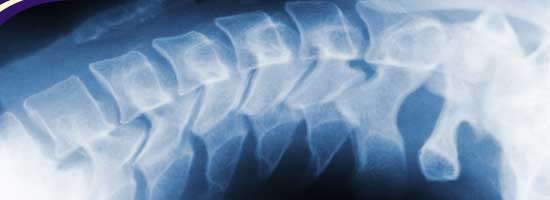Could Your Vitamins Be Causing Disease?
Some interesting research is being brought to the forefront in the synthetic vs. whole food supplement debate. The more time I spend studying, the more intuitive sense it makes to me that natural whole food supplements are superior to their synthetic counterparts. It is impossible to replicate in a lab the nutrients the healthy foods our bodies are designed to function on.
All of the nutrients in whole food supplements, like the Optimal Health Systems line we carry in the practice, are derived from natural sources. Also, the minerals in the supplements we use are bound with amino acids to significantly increase absorption.

These studies illustrate not only the possible superiority of whole food supplements, but also the potential dangers of synthetic vitamins.
Synthetic Vitamin C Supplements May Lead to Heart Disease
Researchers from the Institute for Health Promotion and Disease Prevention Research found that “regular intake of [synthetic] vitamin C pills may quicken the thickening of artery walls, a condition known as atherosclerosis”. Of the 573 men and women studied, those that had consumed at least 500 milligrams of ascorbic acid Vitamin C supplements a day, developed an inner artery wall layer 2.5 times thicker than that of people who did not take the synthetic supplements. However, the researchers found “no evidence that vitamin C from food caused heightened atherosclerosis progression. According to researcher James H. Dwyer, “When you take in vitamins from food, you take them in with a large number of other components of that food. It is plausible that the protective effective of a diet occurs because of the interaction of many components of those foods.”
Rado, Alicia. “Too much of a good thing? Large doses of vitamin C linked to atherosclerosis”. HSC Weekly, Feb 25, 2000; Vol 6, No 7.
Synthetic Vitamin E Harmful
According to a study published in the Proceedings of the National Academy of Sciences, the synthetic form of vitamin E (alpha-tochopherol) does an incomplete job of neutralizing certain compounds and can actually block beneficial natural nutrients in the body. Stephan Christen, lead author of the study, said consuming over 100 international units of alpha-tocopherol may be harmful. Christen said he hopes vitamin/pill companies will soon begin adding gamma-tocopherol to their formulas so consumers can receive the full benefits from vitamin E.
Recer, Paul. “Vitamin E pills may pose risk.” The Arizona Republic, April 1, 1997.
Synthetic Vitamin C May Contribute to DNA Damage
According to an article published in the journal Science, researchers found that “the [synthetic] vitamin C pills taken by millions of health-conscious Americans may actually help produce toxins that can damage their DNA, a step toward forming cancer cells”. Ian A. Blair, the study’s lead author, said they found that synthetic “vitamin C was highly efficient in converting lipid hydroperoxide [a compound produced in the body from fat in the diet] into gene-damaging toxins.”
Recer, Paul. “Lab Study Finds Vitamin C Dangers.” The Washington Post, June 14, 2001.
Beta-Carotene Provides No Benefit in Cancer Prevention
“Former blue asbestos workers known to be at high risk of asbestos-related diseases, particularly malignant mesothelioma and lung cancer, were enrolled in a chemo-prevention program using vitamin A. [The goal of the study was] to compare rates of disease and death in subjects randomly assigned to [synthetic] beta-carotene or retinol.” Results of the five-year study “confirm other findings of a lack of any benefit from administration of large doses of synthetic beta-carotene.”
de Klerk NH et al. Vitamin A and cancer prevention II: comparison of the effects of retinol and beta-carotene. Int J Cancer 1998 Jan 30; 75(3):362-7.
